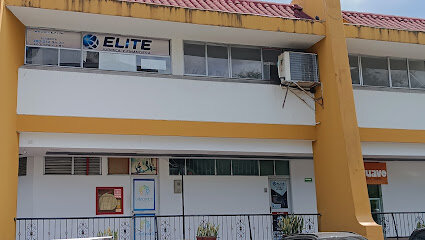Best Employment & Labor Lawyers in Colombia
Share your needs with us, get contacted by law firms.
Free. Takes 2 min.
Or refine your search by selecting a city:
List of the best lawyers in Colombia
About Employment & Labor Law in Colombia
Employment and labor law in Colombia is designed to regulate the relationship between employers and employees, ensuring fairness and justice in workplace practices. The Colombian labor framework covers various aspects such as contracts, wages, working hours, termination, and social security. It aims to protect workers' rights while balancing the interests of employers, fostering a harmonious labor environment.
Why You May Need a Lawyer
Engaging a lawyer who specializes in employment and labor law can be crucial in several situations. Common scenarios include wrongful termination disputes, issues regarding non-payment or underpayment of wages, disputes over employment contracts, and matters involving workplace discrimination or harassment. Employers might also seek legal advice to comply with complex labor regulations, handle layoffs, or resolve labor disputes amicably. A lawyer can provide guidance, represent interests in court, and help in negotiations to ensure legal rights are protected.
Local Laws Overview
Colombian employment and labor laws are influenced by the country's Constitution, statutory laws, specific labor codes, and international labor agreements. Some key aspects include:
- Contracts: Employment relationships can be governed by verbal or written contracts, with trial periods not exceeding two months.
- Working Hours: Standard working hours are 48 hours a week, with rules on overtime and night work compensation.
- Wages: There is a national minimum wage, and salaries should be paid at least once a month.
- Termination: Legal procedures must be observed for dismissals, including prior notice and severance payments depending on length of service and contract type.
- Health and Safety: Employers must ensure safe working conditions, aligning with Occupational Health and Safety regulations.
Frequently Asked Questions
1. What constitutes wrongful termination in Colombia?
Wrongful termination occurs when an employee is dismissed without just cause or due process as outlined in the labor code.
2. Can employment contracts be verbal?
Yes, while written contracts are recommended for clarity, verbal contracts are legal in Colombia, but their terms must be demonstrated if disputed.
3. How is overtime compensated?
Overtime is compensated at a higher rate than regular hours, with additional increments for night or holiday work.
4. What is the minimum wage in Colombia?
The minimum wage is set annually by the government and must be adhered to by all employers.
5. What are the rights of pregnant employees?
Pregnant employees are entitled to maternity leave, job security during pregnancy, and related healthcare benefits.
6. Are foreign nationals entitled to the same labor rights?
Yes, foreign nationals legally working in Colombia are entitled to the same labor rights as Colombian citizens.
7. How can an employee seek redress for workplace harassment?
Employees should report harassment to their employer, and if unresolved, they can file a complaint with the Ministry of Labor or seek legal advice.
8. What benefits must employers provide?
Employers must provide social security benefits, including health, pension, and occupational hazard coverage.
9. How are disputes typically resolved?
Labor disputes can be resolved through conciliation, arbitration, or litigation in labor courts, if necessary.
10. What are the obligations of employers during a restructuring?
Employers must observe labor regulations on fair dismissal, severance payments, and consult with trade unions if applicable.
Additional Resources
For further assistance, consider reaching out to the following resources:
- Ministry of Labor in Colombia: A governmental body overseeing labor issues and disputes.
- Chambers of Commerce: They often have legal services and resources for employment law inquiries.
- Employers Associations and Trade Unions: Provide support and advice related to labor issues.
Next Steps
If you require legal assistance in employment and labor matters, it's advisable to consult with a specialized lawyer. Begin by researching law firms that focus on labor law or seek recommendations. Prepare all relevant documents and information related to your case. You may also contact the Ministry of Labor for initial guidance or to file a complaint if needed. Seeking timely legal advice can significantly impact the resolution of your employment issues.
Lawzana helps you find the best lawyers and law firms in Colombia through a curated and pre-screened list of qualified legal professionals. Our platform offers rankings and detailed profiles of attorneys and law firms, allowing you to compare based on practice areas, including Employment & Labor, experience, and client feedback.
Each profile includes a description of the firm's areas of practice, client reviews, team members and partners, year of establishment, spoken languages, office locations, contact information, social media presence, and any published articles or resources. Most firms on our platform speak English and are experienced in both local and international legal matters.
Get a quote from top-rated law firms in Colombia — quickly, securely, and without unnecessary hassle.
Disclaimer:
The information provided on this page is for general informational purposes only and does not constitute legal advice. While we strive to ensure the accuracy and relevance of the content, legal information may change over time, and interpretations of the law can vary. You should always consult with a qualified legal professional for advice specific to your situation.
We disclaim all liability for actions taken or not taken based on the content of this page. If you believe any information is incorrect or outdated, please contact us, and we will review and update it where appropriate.
Browse employment & labor law firms by service in Colombia
Colombia Attorneys in related practice areas.
Browse employment & labor law firms by city in Colombia
Refine your search by selecting a city.














